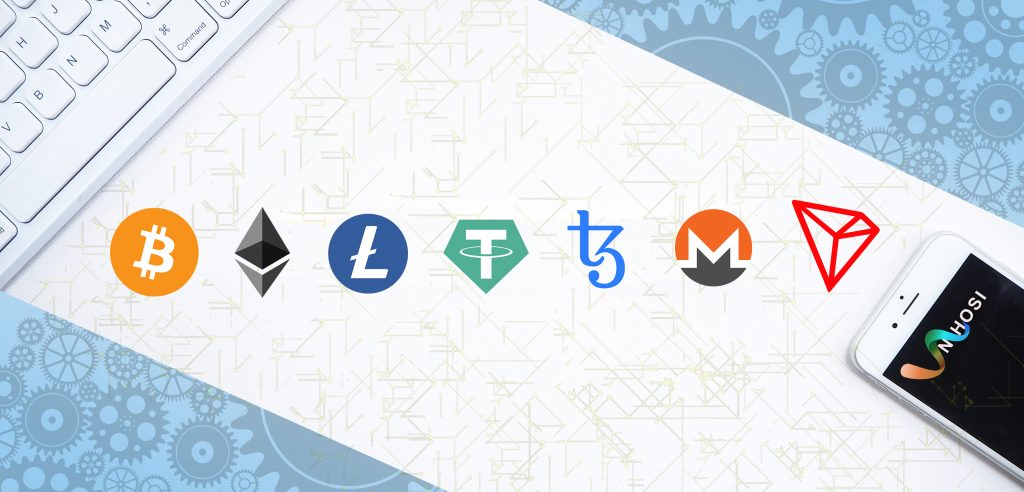Bitcoin is a type of virtual currency that functions as a form of payment and exchange similar to traditional money. As a form of cryptocurrency, Bitcoin can be used to buy goods and services from merchants who accept it as a method of payment. Unlike traditional currency, Bitcoin transactions are not managed by a central authority or bank. Instead, Bitcoin owners can directly trade, sell, and purchase products and services with each other. This decentralization allows for greater control and flexibility in financial transactions, as there is no need for intermediaries or third-party involvement.
Bitcoin is a decentralized digital currency that operates on a peer-to-peer network. This means that all transactions are conducted directly between independent network participants without the involvement of any intermediary or central authority. The absence of a centralized governing body eliminates the need for any monitoring or control of the Bitcoin network. The inventor of Bitcoin, Nakamoto, created the cryptocurrency to enable online payments to be transmitted directly between parties without the involvement of financial institutions.

The notion of digital currency is not a recent one. Even before the advent of the first digital alternative currencies, the idea of cryptocurrency existed as a conceptual framework for some time. Various attempts were made to create online currencies with encrypted ledgers prior to the development of Bitcoin, which is regarded as the first-ever cryptocurrency. Several programmers and pioneers believed that having a currency unique to the digital realm would be advantageous.
Bitcoin has gained widespread recognition as one of the most popular virtual currencies currently in use. Since its inception in 2009, the value of Bitcoin has significantly increased. Its inventor, who used the pseudonym Satoshi Nakamoto, designed the cryptocurrency to function as an electronic payment system that relies on cryptographic evidence instead of trust. Some people purchase Bitcoin as an investment, anticipating that its value will appreciate, while others, such as individuals and corporations, use it as a form of currency or accept payments made in it. Transactions made using Bitcoin are currently supported by PayPal, and in some countries like El Salvador, it is recognized as a legal form of currency.

Bitcoin (BTC)
The Origin of Cryptocurrency
In 2008, an individual using the name Satoshi Nakamoto authored a white paper entitled “Bitcoin: A Peer-to-Peer Electronic Cash System,” which outlined the mechanics of the Bitcoin blockchain network. The author’s true identity has never been made public, and several research efforts have been undertaken to determine whether Nakamoto is a pseudonym or represents a group of individuals. Bitcoin, the first decentralised cryptocurrency, was created in 2009, and Nakamoto conducted the first-ever Bitcoin transaction on January 12 of that year. The digital currency was the first of its kind and was invented in 2009. A programmer named Hal Finney received 10 BTC as payment.
How does Bitcoin work?
During the creation of Bitcoin, a decentralised digital ledger called a blockchain was conceptualized. A distributed digital ledger commonly referred to as a blockchain, is a type of public ledger that records transactions and associated data in multiple locations at the same time. Blocks are the basic building blocks of a blockchain, and they contain information about each transaction, including the date, time, value, buyer and seller, as well as a unique identification number for each transaction.
The information stored on a blockchain is highly secure and tamper-proof due to its unique structure. Each machine in the network has a copy of the ledger, eliminating the possibility of a single point of failure. If any changes are made to one block, those changes must be replicated on all other blocks in the distributed ledger. Blockchain technology is decentralised, meaning it cannot be controlled by any single entity or group, and its security is further enhanced by the use of unique identification codes, which makes it more difficult to generate blocks fraudulently.
A digital wallet app allows users to safely store their Bitcoin on their computer or mobile device. Cryptocurrency wallets are one of the most dependable methods for safeguarding bitcoin, and there are many types of wallets to choose from. People who use software wallets can keep a small amount of bitcoin on their computer or mobile device for daily transactions, while transferring the majority of their holdings to an offline wallet for more secure storage. This makes it difficult for malicious software to gain access to a user’s bitcoins by stealing their bitcoin wallet password.
An offline wallet is a type of digital wallet that is not connected to the internet but is stored on a removable storage device such as a USB drive or a live disk. A hardware wallet is another type of offline wallet that is a physical device, like a flash drive, used to store a user’s private keys. Private keys are never shared, even when the device is connected to another device, as all signed transactions are done locally. To complete a transaction in a multi-signature wallet, two or more private keys are required. By storing private keys offline, the likelihood of a wallet’s contents being accessed if it is lost or stolen is significantly reduced. A multi-signature provider may also save a third key in addition to the two keys stored on the user’s mobile device and in a secure location.
To send bitcoin to another user, individuals can transfer it from their digital wallet to the recipient’s wallet. The transfer process involves sending bitcoin from a bitcoin address in the sender’s wallet to a bitcoin address (an alphanumeric string) in the recipient’s wallet. The sender can choose whether to send the funds in bitcoin or the local currency. A small fee is charged for every bitcoin transaction, which is sent to the miner of the cryptocurrency. The fee may vary depending on factors like the urgency of the transaction.
How Does Bitcoin Mining Work?
Bitcoin mining refers to the process of adding new transactions to the Bitcoin network. Miners use software that utilizes the processing power of their computers to solve algorithms related to Bitcoin transactions. When a miner successfully solves an algorithm, they are rewarded with a certain amount of bitcoin. This incentive encourages miners to continue solving the transaction-related algorithms, which is essential for the proper functioning of the entire system. This approach is commonly known as the proof of work mechanism.
During the initial stages of Bitcoin, it was feasible for an average person to engage in cryptocurrency mining. In those days, Bitcoin mining was done using a computer’s central processing unit (CPU), and the number of available CPU cores, as well as the processing speed, were critical factors in determining the amount of cryptocurrency mined. However, as time went on, multi-graphics card systems, FPGAs, and ASICs were adopted for Bitcoin mining. These advancements aimed to decrease energy usage while increasing the amount of Bitcoin mined.
The situation has changed since then. The Bitcoin software has been designed to make it increasingly difficult to solve its puzzles over time, which means that more and more computational resources are needed. Today, mining Bitcoin requires powerful computers and access to a large amount of cheap energy to be profitable. Additionally, the rewards for mining Bitcoin have decreased, making it even more challenging to recoup the costs associated with processing power and electricity.
Note: This material is not intended to, and should not be interpreted as, giving any kind of financial advice to its readers. In addition, we are not your financial counsellor, legal advisor, medical advisor, advice on operating heavy equipment, or advisor of any other type for that matter. This will in no way be used for anything other than educational reasons. Neither nihosi.com nor the companies that are its parents will be held liable for any loss, damage, or discomfort that occurs as a consequence of relying on information that is either published on nihosi.com or linked to the website.
Before you invest any of your money in any cryptocurrency, you need to be sure that you have done your homework and investigated the industry in great detail. You do so at your own risk and should exercise great care while using any of the possibilities available to you. Do your investigation before utilising a website; this is particularly critical if the website requires personal information or requests access to data or downloads. Please see our website’s Privacy Policy, Disclaimer, and About Us pages for further information.











Subscribe To Our Newsletter
Join our mailing list to receive the latest news and updates from our team.
You have Successfully Subscribed!